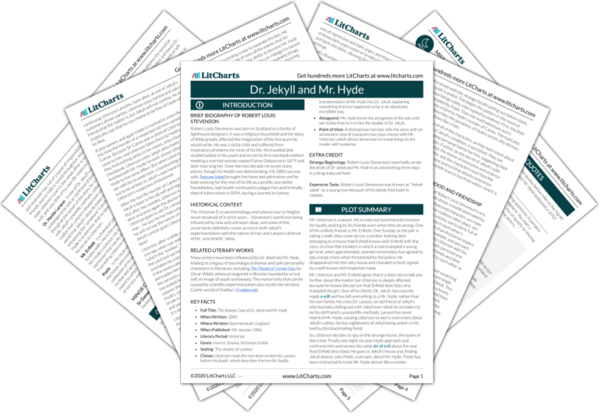LitCharts assigns a color and icon to each theme in Dr. Jekyll and Mr. Hyde, which you can use to track the themes throughout the work.
Science, Reason and the Supernatural
The Duality of Human Nature
Reputation, Secrecy and Repression
Bachelorhood and Friendship
